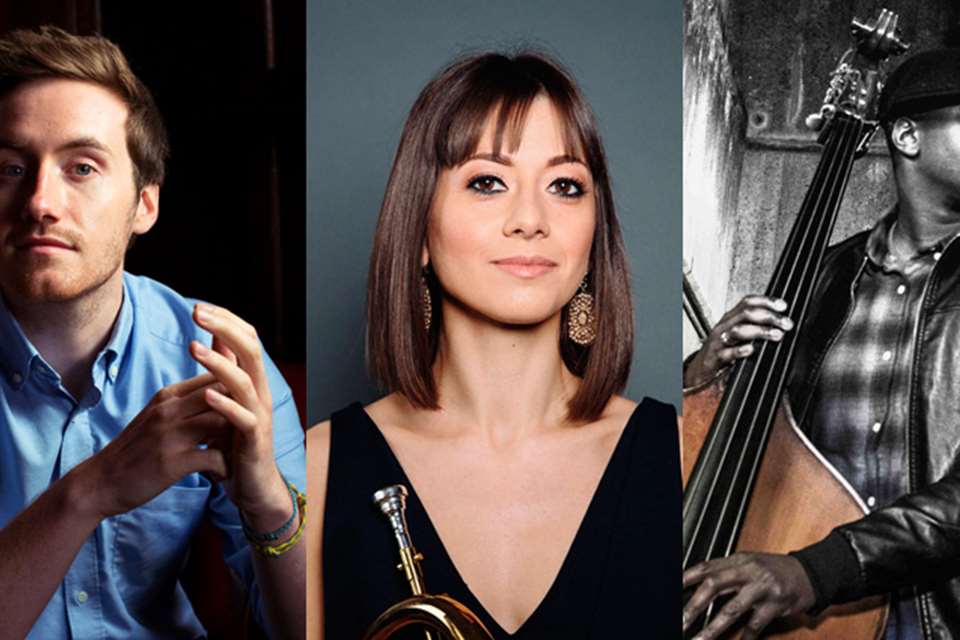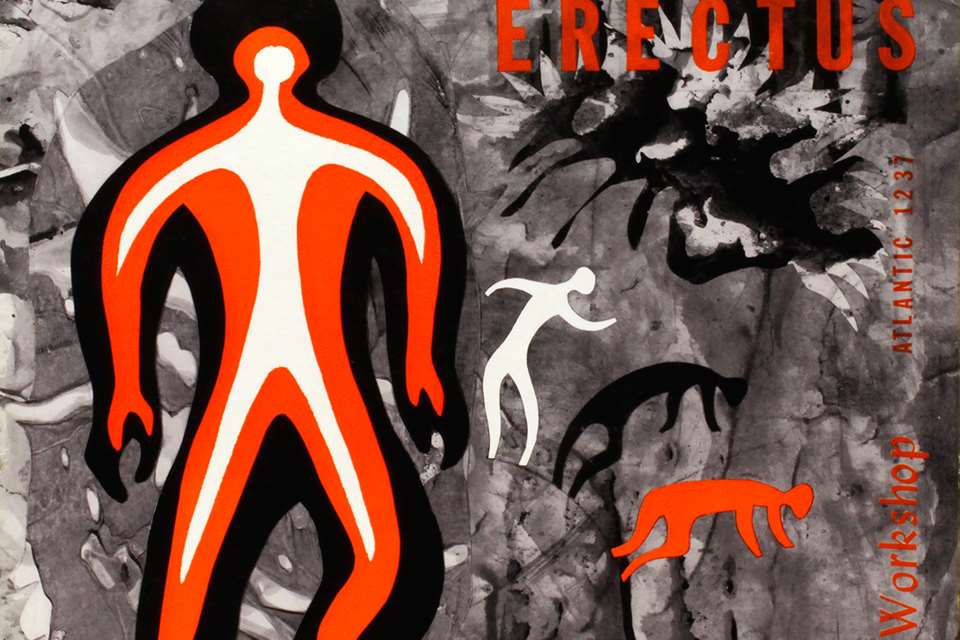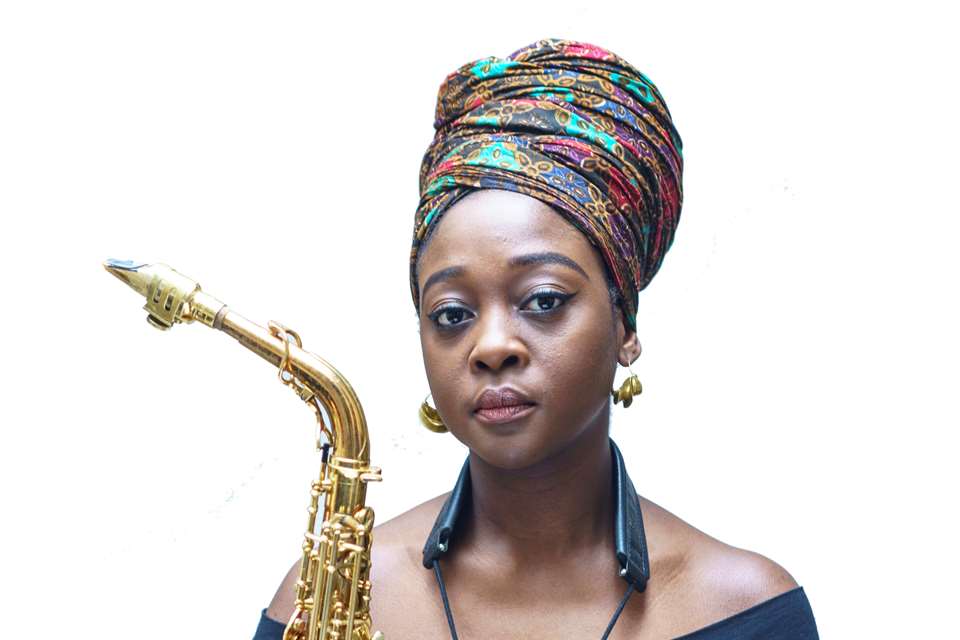Daniel Casimir: “I keep harmonically rooted within jazz, and bring grime and garage elements, and a groove”
Tuesday, November 26, 2019
With his supple basslines and effortlessly warm tone, bassist Daniel Casimir has been the driving force behind new festival stars such as Nubya Garcia and Joe Armon-Jones. Now stepping out as a solo artist, Casimir spoke to Nick Hasted about his spiritual blend of Mingus, bebop and soul on his debut album These Days

At Brighton’s Jazz Re:Fest festival last year, as Yussef Dayes played Senegalese-style half-speed drum’n’bass and Noya Rao essayed rigid post-techno bossa nova, bassist Daniel Casimir remained reliably rooted in jazz’s soil. He’s the London scene’s double-bass constant, playing with Moses Boyd, Joe Armon-Jones and Shirley Tetteh on his debut EP Escapee (2017), and on Nubya Garcia and Camilla George’s debuts. While some of his peers privately resent being tagged and tethered by the word ‘jazz’, Casimir wears it proudly.
“I love jazz!” he laughs, over tea at iconic Soho patisserie Maison Bertaux. “At some point you have to find your path. And for me it was to take that music, but also reflect and document the times. Escapee was – ‘Ah, I’ve become a father for the first time.’ And now my album These Days is, ‘Look where we’re at.’”
That first LP co-credits lyricist and singer Tess Hirst (who had the same role on Escapee, having grown up with Casimir in Greenford, a West London suburb). But the first, jolting words we hear are adapted from Mingus’s ‘Fables of Faubus’, as Hirst cries: “Oh, Lord, don’t let them shoot us. Oh Lord, don’t let them stab us. Oh Lord, don’t let them daub a swastika.” “I wanted to do a version of that,” Casimir reflects, “because unfortunately it was written way back in the 1950s, but it relates to today.”
The ominous instrumental, ‘They Come Over Here’, meanwhile recalls Cassie Kinoshi’s bluntly titled ‘The Darkies’ on her SEED Ensemble’s Mercury-nominated Driftglass, suggesting that suddenly untrammelled prejudice is drawing ripostes of Mingus-like directness. But though he has two young children to worry about, Casimir takes comfort from the long view. “The rate of change is weekly now, borderline daily,” he says of our fractious times. “So it’s waiting to see what happens. Because even talking to my mum, there was a murder that happened, right around when I was born, the Stephen Lawrence murder. And she was concerned around that time. I’m concerned about my kids as well, but compared to then, change is so swift now. And because of the internet, people have the means of looking into dubious things and calling them out. So I’m worried. But I’m hopeful.”
Casimir began playing bass aged 15, influenced first by Motown’s James Jameson then, via Jaco Pastorius, discovering bebop. “There’s definitely a physical element,” he explains of the bass’s appeal. “I used to play bass steel drums when I was 12 too, which was me in the middle of six huge oil drums. You physically had to play those notes. It made the rhythm more engrained, when it came to playing electric and double-bass, too.” Bassists’ general dodging of the spotlight also suits this notably gentle man. “The bass reflects who I am,” he agrees. Four years at Birmingham Conservatoire let him meet one of its masters, Dave Holland. “One time I almost cried watching him,” he remembers. Further schooling at Trinity Laban between 2012 and 2015, and the broader education of Tomorrow’s Warriors, introduced him to current crucial peers such as Moses Boyd.
“Wayne Shorter was a huge influence on my writing,” he adds, reflecting on the melodicism and hard bop elements of his music. “Juju is one of my favourite albums, I liked its rebellion and emotiveness. I hear the title-track as an intense, fiery piece. And it’s very modern. Even his latest album, Emanon, is incredible. I try to take that influence and reflect on music that I’ve grown up with. Because I didn’t grow up listening to jazz. So how does it reflect in my upbringing, how can they merge together? In order for me not to sound like an American musician, I have to bring in my London upbringing. I keep harmonically rooted within jazz, and bring grime and garage elements, and a groove. I try to hide my [straightahead] influences.”
There are also hints of spirituality in Casimir’s benign, sanguine music. “I grew up in the Catholic church,” he says. “I used to play in Pentecostal churches as well. I’d say I am religious. I can’t really see art without religion. Because art is very pointless. It doesn’t have a very functional element to it, but it exists, and people want it, and it fulfils an urge which suggests the existence of the spiritual. Music translates to the wordless. So I assume that it has to be a spiritual thing. Many people would disagree with that. But there’s the sacred music of Duke Ellington, and A Love Supreme is such a strong example.”
Recording a second LP is already planned for December. “At the moment it’s called Beyond the Box,” Casimir explains. “I want to link classical instruments to improvising, so I have a string quartet, woodwind and brass playing expanded compositions. I’m trying to merge two worlds again, in a way that reflects me.”
These Days is out now on Jazz re:freshed: danielcasimirandtesshirst.bandcamp.com
This article originally appeared in the November 2019 issue of Jazzwise. Never miss an issue – subscribe today!


